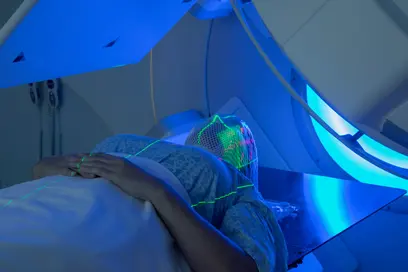Ferroptosis is an iron-dependent form of cell death. In this process, highly reactive radicals oxidize the lipids of the cell, triggering a chain reaction that leads to damage to the cell membrane and, ultimately, cell death.
An international team led by scientists from the University of Würzburg, the DKFZ and HI-STEM now demonstrates that the cholesterol precursor 7-dehydrocholesterol (7-DHC) plays a crucial role as an antioxidant promoting cancer cell aggressiveness. 7-DHC integrates into the cell membranes and protects the cells by preventing ferroptosis. This study showed that upon inhibition of the last enzyme in the cholesterol biosynthesis process, known as 7-dehydrocholesterol reductase (DHCR7), and as a consequence of increased levels of the substrate 7-DHC, cancer cells become extremely aggressive.
“Until now, the accumulation of 7-DHC was only associated to neurodevelopmental defects, now we show that it actually increases cellular fitness and could promote a more aggressive behaviour in cancers such as Burkitt's lymphoma and neuroblastoma,“ says Friedmann Angeli, senior author of the publication.
“The findings also provide a possible explanation as to why Burkitt's lymphoma (BL) cancers with mutations in DHCR7 are highly aggressive. It might be important to consider blocking the production of 7-DHC when treating cancer with drugs that induce oxidative stress and ferroptosis to prevent cancer cells from escaping cell death,“ says Hamed Alborzinia, DKFZ and HISTEM.
The next goal for the research team is to investigate the cholesterol biosynthesis pathway during tumor cell expansion and treatment, not only in Burkitt's lymphoma but also in other cancer types. The newly discovered protective function of 7-DHC offers compelling possibilities for further improving the treatment of cancer and other diseases associated with ferroptosis. It also provides new opportunities to test potential inhibitors targeting cholesterol biosynthesis, which are already established in medical practice.
Possible Effects on Tumor Development
The authors of the new study also call for further epidemiological studies. Background: There are drugs authorised by the US Food and Drug Administration (FDA) that can inhibit the DHCR7 enzyme. These include trazodone, which is prescribed around 20 million times a year in the USA, sometimes even for off-label use to treat insomnia. Studies have shown that individuals taking this drug have elevated plasma levels of 7-DHC. Epidemiological studies are crucial to better understand potential effects in this context. These studies would help to find out whether there is a connection between patient groups who regularly take ferroptosis-modulating drugs such as Trazodone and cancer incidence, the occurrence of metastases or other critical aspects of public health.
Publication
Florencio Porto Freitas, Hamed Alborzinia, Ancély Ferreira dos Santos, Palina Nepachalovich, Lohans Pedrera, Omkar Zilka, Alex Inague, Corinna Klein, Nesrine Aroua, Kamini Kaushal, Bettina Kast, Svenja M. Lorenz, Viktoria Kunz, Helene Nehring, Thamara N. Xavier da Silva, Zhiyi Chen, Sebastian G. Doll, Emily L. Schaefer, Ifedapo Ekpo, Werner Schmitz, Aline Horling, Peter Imming, Sayuri Miyamoto, Ann Wehmann, Thiago C. Genaro-Mattos, Karoly Mirnics, Lokender Kumar, Judith Klein-Seetharaman, Svenja Meierjohann, Isabel Weigand, Matthias Kroiss, Georg W. Bornkamm, Fernando Gomes, Luis Eduardo Soares Netto, Manjima B. Sathian, David B. Konrad, Douglas F. Covey, Bernhard Michalke, Kurt Bommert, Ralf C. Bargou, Ana Garcia-Saez, Derek A. Pratt, Maria Fedorova, Andreas Trumpp, Marcus Conrad, José Pedro Friedmann Angeli:
7-Dehydrocholesterol is an endogenous suppressor of ferroptosis. Nature, 31. Januar 2024, www.nature.com/articles/s41586-023-06878-9
*The Heidelberg Institute for Stem Cell Technology and Experimental Medicine (HI-STEM) gGmbH was founded in 2008 as a public-private partnership between the DKFZ and the Dietmar Hopp Foundation.



